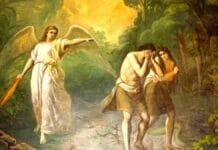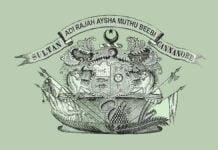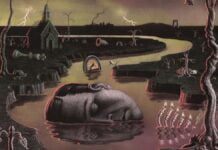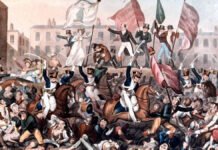Naturalism is a style and philosophy in literature and art that aims to replicate a believable everyday reality, emphasising the role of heredity and environment in shaping human character and destiny. It often focuses on the darker aspects of life and society. Naturalism, an offshoot of Realism, emerged in the late 19th century as a literary movement. While realism sought to depict everyday life accurately, naturalism went further, aiming to portray the determinism of human behaviour through a scientific lens. Influenced by the theories of Charles Darwin, naturalist writers believed that human beings were shaped by their environment and heredity, often depicting characters whose lives were governed by these forces. This essay delves into the origins, characteristics, notable works, and impact of naturalism in literature. It was a stark, often bleak portrayal of life, emphasising the role of heredity, environment, and social conditions in shaping human destiny. Naturalists believed individuals were products of their circumstances, with little to no free will.
Naturalism arose in France in the late 19th century, primarily influenced by the scientific advancements of the time, notably Darwin’s theory of evolution. The movement was spearheaded by French novelist Émile Zola, often regarded as the father of naturalism. Zola’s series of novels, Les Rougon-Macquart, exemplifies naturalist principles, depicting the lives of a family across generations, influenced by their genetic makeup and socio-economic environment.
Characteristics
Determinism
A core tenet of Naturalism is determinism, the philosophical belief that all events, including human actions, are ultimately determined by causes external to the will. Naturalist writers emphasise that human behaviour is determined by heredity, environment, and social conditions rather than free will. Naturalistic characters are often victims of their environment, heredity, or social class.
Scientific Objectivity
Inspired by scientific methods, naturalist literature often adopts an objective and detached narrative style, aiming to observe and record life with clinical precision.
Detailed Descriptions
Like realism, naturalism meticulously describes settings and characters but places a greater emphasis on life’s harsh and gritty aspects.
Focus on the Lower Classes
Naturalist works frequently depict the lives of the poor and working class, highlighting their struggles and the impact of socio-economic forces on their lives.
Exploration of the Dark Side of Life
Naturalism often delves into poverty, disease, corruption, and vice, presenting a bleak and unflinching view of human existence.
Pessimism
A pessimistic outlook often characterises naturalism, as characters struggle against overwhelming forces beyond their control.
Survival of the Fittest
Drawing inspiration from Darwin’s theory of evolution, Naturalists often portrayed life as a brutal struggle for existence, where only the strongest survive.
Themes
Survival and Struggle
Characters are depicted struggling against insurmountable forces, whether they are social, economic, or biological.
The Influence of the Environment
The settings in naturalist works are often harsh and oppressive, reflecting the impact of the environment on human behaviour and fate.
Human Nature
Naturalist writers delve into the darker aspects of human nature, including greed, lust, and violence, suggesting that these traits are inherent and influenced by external conditions.
The Illusion of Free Will
Characters in naturalist literature often face situations that highlight the limitations of free will, showing how external forces dictate their choices and actions.
The Narrative Style
Naturalist writers adopted an objective, detached, and often pessimistic narrative style. They aimed to present a scientifically accurate portrayal of life, avoiding romanticised or idealised depictions. This style usually resulted in a stark, unembellished view of the world, focusing on the harsh realities individuals face.
Techniques
Naturalist writers employ various techniques:
- Detailed, often scientific descriptions
- Use of symbolism and imagery from nature
- Objective, often detached narration
- Character studies that emphasise psychological and physiological factors
- Plots that follow a process of decline or degeneration
Émile Zola and French Naturalism
Émile Zola’s contributions to naturalism are monumental. His Les Rougon-Macquart series, consisting of twenty novels, comprehensively studies a family over several generations. Zola’s works, such as Germinal and Thérèse Raquin, explore the impact of industrialisation, class struggle, and genetic inheritance on individuals. His detailed and often stark portrayals of life reflect his belief in the scientific approach to literature.
Naturalism in American Literature
Naturalism found a significant foothold in American literature, with writers like Stephen Crane, Theodore Dreiser, and Frank Norris leading the movement. Stephen Crane’s Maggie: A Girl of the Streets and The Red Badge of Courage depict characters whose lives are shaped by their harsh environments and internal struggles. Theodore Dreiser’s Sister Carrie and An American Tragedy explore the impact of socio-economic forces on individuals’ ambitions and moral decisions. Frank Norris’s McTeague and The Octopus highlight the deterministic forces in human life, from greed to natural and social environments.
Naturalism in English Literature
In England, naturalism influenced writers like George Gissing and Thomas Hardy. Gissing’s novels, such as New Grub Street and The Nether World, focus on the lives of the impoverished and the impact of social conditions on their aspirations. Thomas Hardy’s Tess of the d’Urbervilles and Jude the Obscure present tragic characters whose fates are sealed by hereditary and social forces beyond their control, emphasising the deterministic aspect of naturalism.
The Influence of Darwinism
Charles Darwin’s theories, particularly the concept of natural selection, profoundly influenced naturalist writers. They applied Darwin’s ideas to human society, suggesting that just as animals are shaped by their environments and heredity, so are humans. This scientific approach led to a more deterministic view of human life, where free will was often seen as an illusion.
Criticism and Reception
Naturalism faced criticism for its bleak outlook and deterministic perspective. Some critics argued that its focus on the darker aspects of life and its deterministic approach reduced the complexity of human experience. Others felt that naturalism’s emphasis on scientific objectivity came at the expense of emotional depth and artistic expression. Despite these criticisms, naturalism had a lasting impact on literature, influencing later movements and writers.
Naturalism in Modern Literature
Contemporary literature still reflects the influence of naturalism, particularly in works that examine the impact of the environment and heredity on human behaviour. Authors like Cormac McCarthy and Richard Wright explore themes of survival, struggle, and the darker aspects of human nature in their works. McCarthy’s The Road and Wright’s Native Son are examples of modern literature that echo the naturalist tradition.
Key Authors
Notable naturalist authors include:
- Émile Zola (France)
- Stephen Crane (USA)
- Theodore Dreiser (USA)
- Frank Norris (USA)
- Jack London (USA)
- Thomas Hardy (England)
Naturalism in Other Arts
Naturalism extended beyond literature to other art forms, including theatre, painting, and film. In theatre, playwrights like Henrik Ibsen and August Strindberg incorporated naturalist elements into their plays, focusing on realistic settings and complex characters. In painting, artists like Gustave Courbet and Édouard Manet depicted everyday life with a focus on realism and detail. In visual arts, naturalism was characterised by:
- Unidealised representations of subjects
- Focus on working-class and rural subjects
- Attention to light, atmosphere, and natural settings
- Often, sombre or muted colour palettes
Notable naturalist painters include Jules Bastien-Lepage, Pascal Dagnan-Bouveret and George Clausen. In film, directors like Vittorio De Sica and Roberto Rossellini employed naturalist techniques in their neorealist films, portraying the struggles of ordinary people in post-war Italy.
The Influence on Social Change
Naturalist literature often highlighted social issues and injustices, prompting readers to reflect on and address these problems. By depicting the harsh realities faced by the poor and marginalised, naturalist writers raised awareness of socio-economic conditions and inspired social reform. This social consciousness continues to influence literature and activism today.
Naturalism and Psychology
Naturalism’s focus on determinism and the influence of external forces on human behaviour intersected with the emerging field of psychology. Writers like Sigmund Freud and Carl Jung explored the impact of unconscious desires and environmental factors on human behaviour, paralleling the themes of naturalist literature. This intersection of literature and psychology enriched the understanding of human nature and behaviour.
Differences from Realism
While related to realism, naturalism differs in:
- Its more pessimistic worldview
- Greater emphasis on biological and environmental determinism
- More explicit treatment of taboo subjects
- A more scientific approach to observation and description
Naturalism paved the way for later literary movements exploring the complexities of human behaviour and society. It influenced modernist writers like James Joyce and Virginia Woolf, who incorporated psychological depth and stream-of-consciousness techniques into their works. Naturalism also laid the groundwork for the development of social realism in the 20th century, which continued to focus on the lives of ordinary people and the impact of socio-economic conditions.
Naturalism represents a significant and influential movement in the history of literature. Naturalist writers provided a stark and unflinching view of society and human nature by emphasising the deterministic aspects of human life and adopting a scientific approach to storytelling. Despite its criticisms, naturalism’s impact on literature and other art forms has been profound and lasting, shaping the way writers depict the complexities of human existence. Through its focus on the ordinary, the harsh, and the deterministic, naturalism has left an indelible mark on the literary world, encouraging readers and writers to examine the forces that shape our lives.






























